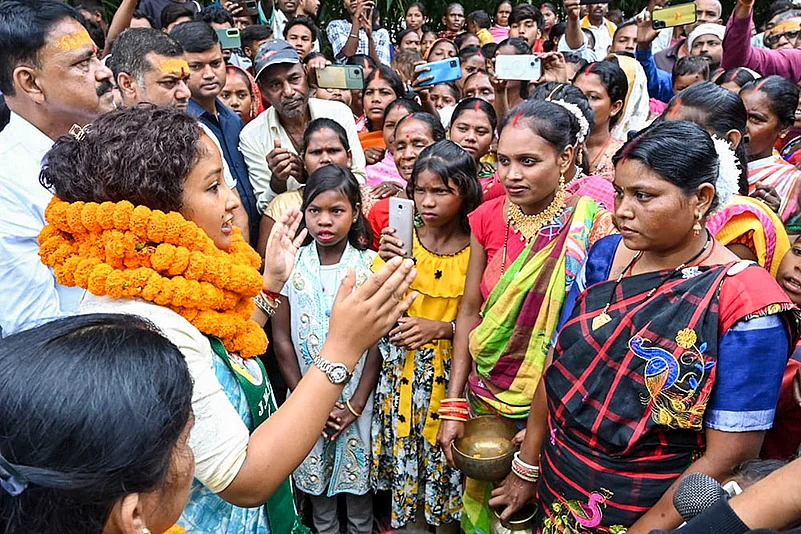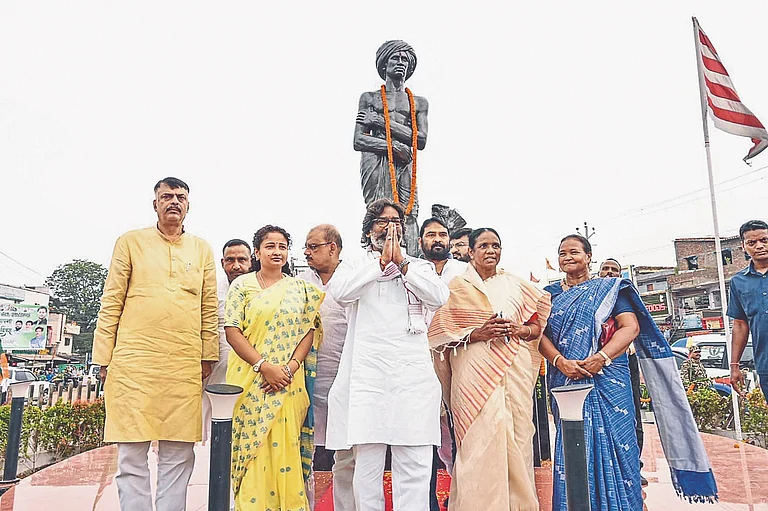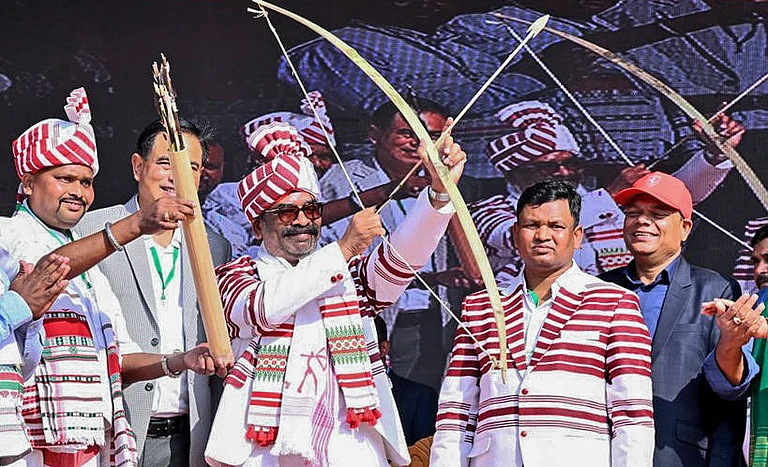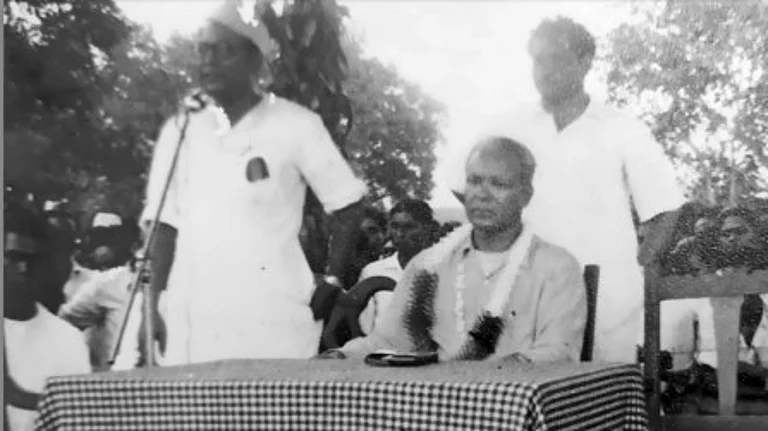As the campaigns for the Jharkhand Assembly elections reaches its peak, the word ‘Abua’ has taken centrestage in political conversation. In their campaigns, both Chief Minister Hemant Soren and his MLA wife Kalpana Soren evoked the term ‘Abua Sarkar’ several times. The Sorens in their statements made the distinction between ‘us’ and ‘them’ very clear. “Those who come from outside don’t know our culture, language and rituals. Only a government under the leadership of Hemant Soren would be ‘Abua Sarkar’,” fumed Kalpana.
But what does the word ‘Abua’ mean? Why is the word so important in Jharkhand politics that JMM has named its major schemes with the prefix ‘Abua’? The word ‘Abua’ in Adivasi languages means ‘our’. It stems from Birsa Munda’s slogan of ‘Abua raj ete jana, maharani raj tundu jana’ meaning ‘Let the kingdom of queen be ended and our kingdom be established’. During their fight against the British rule, Birsa Munda gave the clarion call for ‘Abua Disham, Abua Raj’ and wanted to have Adivasi rule in Adivasi land.
This sentiment of Adivasi rule dominated the politics of the Chhota Nagpur region for long. It was in 1912, when Bihar was carved out from Bengal, that Asmat Ali gave a call for the separate state of Jharkhand. When Adivasi leader Jaipal Singh Munda formed Adivasi Mahasabha in 1938, the demand for the separate state was further entrenched. The long struggle for ‘Abua’ rule in Jharkhand ultimately ended in 2000 when the state was carved out of Bihar.
In 2000, when the Jharkhand state was formed, human rights organisation BIRSA came up with four ‘People’s Agenda’ to govern the state. Firstly, they said that the CMs, deputy CMs and leaders who would be in direct contact with the people should be local and should belong to local tribal groups. Secondly, they noted, "tribal land should be restored and the leases of mines in the area should be taken away from non-tribals and given to local tribal groups". The third demand was against the displacement of Adivasis due to development projects; and the fourth and final one was to form a committee comprising leaders of the Jharkhand movement, intellectuals, women, ST leaders, SCs and others to look into the interests of the local population.
While most of the demands were hardly implemented, the identity of the CM was not compromised on until Raghubar Das was deputed by the BJP as the CM. After 2019, when Soren government came to power, it immediately took up the sentiment of ‘Abua Sarkar’ and in the following years came up with Abua Swasthya Yojana, Abua Awas Yojana to provide healthcare and shelter schemes to those who have, for different reasons, not been enlisted in the central government schemes. In 2023, the government also launched Abua Bir Dishom Abhiyan to spread awareness about forest rights.
Though initially, all of the CMs of the state were Adivasi themselves, in 2014, BJP played a different card and made Raghubar Das, a non-Adivasi the CM of the state. His tenure was mired with controversies as he tried to amend the Santhal Pargana Tenancy Act, allegedly with the intent to strip Adivasis of their land rights. The fallout was a massive movement by Adivasis in 2017-18. Consequently in 2019, despite the party’s formidable performance in the Lok Sabha, the BJP lost the Assembly elections and a Hemant Soren-led coalition of JMM-Congress-RJD came to power. This sudden ‘detribalisation’ of Jharkhand politics, as the author Sujit Kumar calls it, brought back the discourse of ‘Abua raj’.
In 2019, while campaigning for the assembly elections, Heman Soren gave a call for ‘Abua Sarkar’ and said, “BJP is bringing its functionaries from Delhi, UP, Gujarat and Maharashtra. A lot of heroes and heroines are also coming to the state. Once the election is over, none of them will come and alleviate your problems. They will leave a strongman in Raghubar Das. All of you know how he tried to snatch your land by changing the SPT Act.”
Referring to the results of Maharashtra elections where the united Shiv Sena avoided the BJP and formed the government with an undivided NCP and the Congress, Soren said, “In Maharashtra, Chhatrapati Shivaji’s teer-dhanush drove out BJP. In our Jharkhand, our bow and arrow will do the same to the BJP.” However, Soren’s focus was not limited to Adivasis, unlike his predecessors from the 1930s; rather, he took cues from Jharkhand party, the later version of Adivasi Mahasabha that wanted to accommodate both Adivasis and Moolvasis in their struggle.
Loktantra Bachao Abhiyan, a civil society group also published its manifesto for ‘Abua Raj’ in which they, after appreciating work done by Hemant Sarkar like passing of Sarna code bill and domicile policy, asked for the implementation of PESA rules and other land-related demands. The claims for ‘Abua Sarkar’ thus have gained fresh traction in this election. The question lies in whether the BJP would be able to counter the ‘Abua’ narrative with its electoral planks of infiltrators, development and anti-corruption.

























